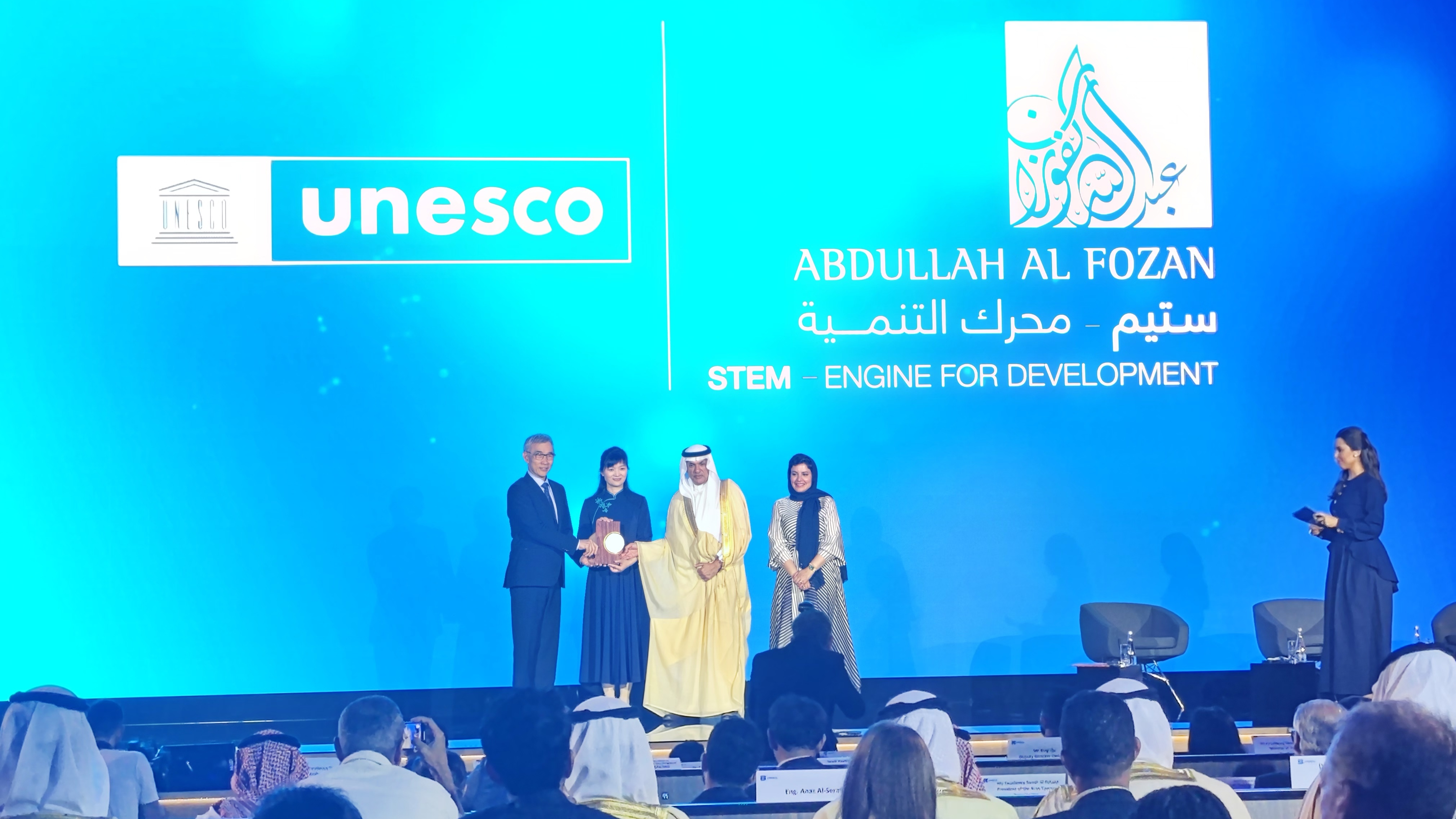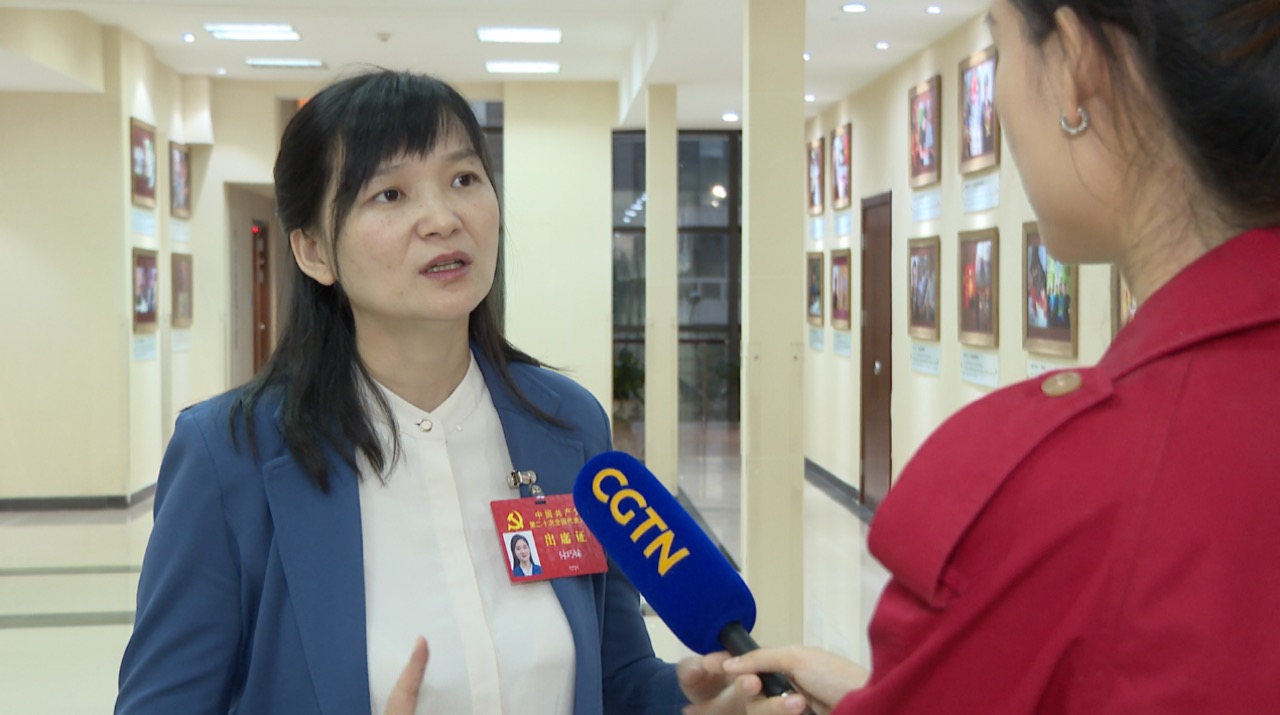
Chinese archaeogenetics scientist Fu Qiaomei (L2) receives UNESCO-Al Fozan International Prize for the Promotion of Young Scientists in Science, Technology, Engineering and Mathematics (STEM) in Paris, France, June 19, 2023. /China Media Group
Chinese archaeogenetics scientist Fu Qiaomei (L2) receives UNESCO-Al Fozan International Prize for the Promotion of Young Scientists in Science, Technology, Engineering and Mathematics (STEM) in Paris, France, June 19, 2023. /China Media Group
Chinese scientist Fu Qiaomei was awarded a UNESCO prize in Paris, France on Monday for her original work on establishing the genetic history of early humans on the Eurasian continent through the study of ancient genomes.
As one of the world's leading scientists in archaeogenetics, Fu, from the Institute of Vertebrate Paleontology and Paleoanthropology at the Chinese Academy of Sciences, stood out among 2,500 candidates worldwide.
Fu is the first Chinese scientist to receive the UNESCO-Al Fozan International Prize for the Promotion of Young Scientists in Science, Technology, Engineering and Mathematics (STEM).
With a primary focus on exploring human origin and evolution with ancient DNA (aDNA) technology, Fu's new study introduced new insights into issues on human health and adaptation from an evolutionary perspective. Her study found traces of prehistoric humans in a pinch of bone meal, a handful of soil and human remains, uncovering the genetic characteristics of populations and certain aspects of human evolution from tiny fragments of DNA.

Fu Qiaomei, a professor from the Institute of Vertebrate Paleontology and Paleoanthropology at the Chinese Academy of Sciences, talks to CGTN reporter, Beijing, China, October 2022. /CGTN
Fu Qiaomei, a professor from the Institute of Vertebrate Paleontology and Paleoanthropology at the Chinese Academy of Sciences, talks to CGTN reporter, Beijing, China, October 2022. /CGTN
The prize aims to strengthen research, education and international cooperation of STEM to confront global challenges addressed by the Sustainable Development Goals, according to the official website for the prize.
It is awarded every two years to five young laureates in related fields. The other four winners of this year are Abdon Atangana from Cameroon, Hesham Omran from Egypt, Jelena Vladic from Serbia and Federico Ariel from Argentina.
The four were awarded for innovative researches and promotions in the fields of mathematics, design of semiconductor chip and microelectronics products, green engineering, and agricultural biotechnology, respectively.